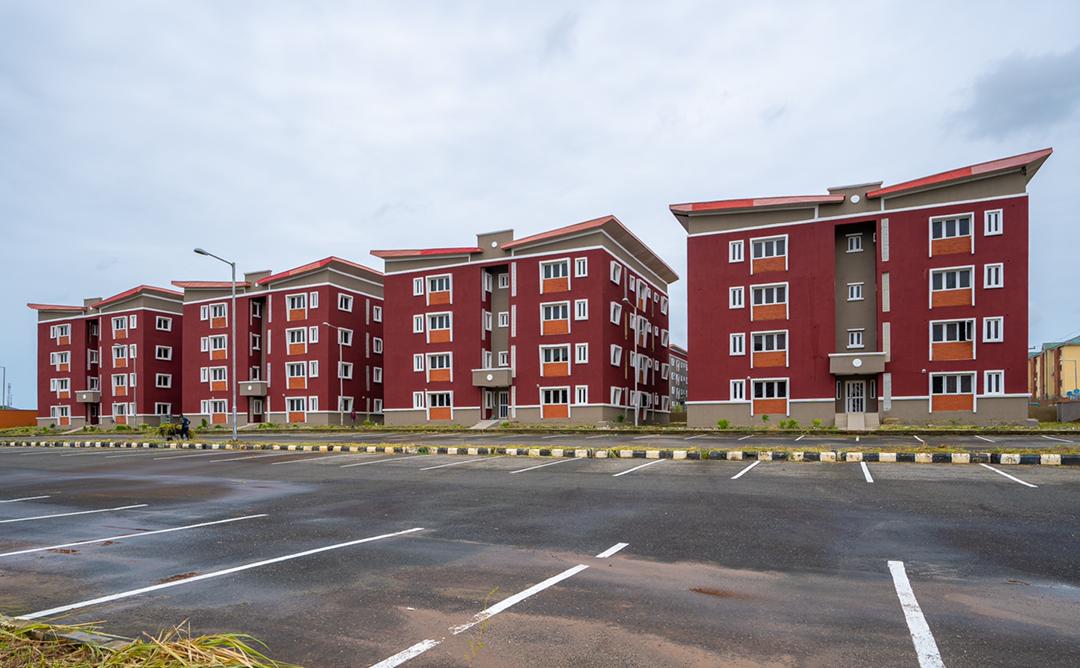 There are concerns that housing project abandonment has multiplier effects on national economic growth and development, especially on the nation’s housing stock. However, experts believe that the solution lies in the government taming inflation, clients providing adequate funding and planning, reliable estimates at the inception, and engagement of competent professionals, VICTOR GBONEGUN reports.
There are concerns that housing project abandonment has multiplier effects on national economic growth and development, especially on the nation’s housing stock. However, experts believe that the solution lies in the government taming inflation, clients providing adequate funding and planning, reliable estimates at the inception, and engagement of competent professionals, VICTOR GBONEGUN reports.
Despite efforts to tackle unending cost-push inflation affecting building materials prices, many investors and property developers are being forced to abandon their housing projects due to the cost of financing, logistics and labour.
The trend is alarming as major cities where housing projects started in the past one to seven months have witnessed half-finished buildings or idle sites. Many developers blame the development on the absence of long-term funding, prices of building materials and government policy, particularly the foreign exchange rate.
The unprecedented increase in abandoned housing projects is more pronounced in Lagos, Abuja, Rivers, Ibadan, and Kano. The development has triggered a call for the federal and state governments to initiate workable solutions towards addressing unstable macro-economic policies affecting building materials prices, importation and other challenges now bedevilling the construction industry.
A recent report by the Nigerian Institute of Quantity Surveyors (NIQS) identified about 56,000 abandoned construction projects valued at N12 trillion across the country belonging to private and public sector organisations. These projects include residential, commercial, and industrial buildings.
The prevailing harsh economic reality hasn’t helped investors in the housing sector. Nigeria’s inflation rate rose for the third straight month in November, advancing to 34.60 per cent. Figures from the National Bureau of Statistics (NBS) show an increase of 0.72 percentage points compared to 33.88 per cent recorded in October 2024. On a year-on-year basis, the inflation rate was 6.40 per cent points higher than the 28.20 per cent rate recorded in November 2023.
The percentage change in the average CPI for the twelve months ending November 2024 over the average for the previous 12-month period was 32.77 per cent, showing 8.76 per cent point increase compared to 24.01 per cent recorded in November 2023. Urban inflation rate on a year-on-year basis, in November 2024 was 37.10 per cent, indicating 6.88 percentage points higher compared to the 30.21 per cent recorded in November 2023.
The effect of inflation is seen in the continuous rise in prices of building materials such as cement, reinforcement, blocks, sanitary wares, sand and gravel, roofing sheets, and tiles, among others. Prices of these materials have risen by over 150 per cent in the last one year. For instance, in most of the building sites, when construction started about four years ago, the cement price was N3,600 per 50kg bag, now about N9,500 in the building materials market. A tonne of reinforcement that used to be N250,000 rose through the successive years to N1.3 million. The same situation applies to other materials.
Also, the Foreign Exchange (FX) market is yet to stabilise despite several initiatives by the Central Bank of Nigeria. Challenges persist in the market, with the naira trading above N1,600. The majority of the essential building materials such as doors, windows, ceramics, tiles, sanitary and plumbing appliances are imported, hence an unstable rate largely impacts the cost of importing these materials, the cost of projects and meeting the delivery datelines.
Currently, Nigeria imports about 90 per cent of the materials used in the construction of buildings and roads across the country, according to the Nigerian Building and Road Research Institute (NBRRI). This further impacts adversely on the economy and increases the demand for scarce foreign exchange.
Industry experts said the incomplete nature of these housing projects poses risks to the surrounding environment and negatively affects the national economy. Furthermore, they expressed worries that the consequences of abandoned housing projects extend directly to homebuyers or subscribers, who emerge as the primary victims and are left to battle with the prolonged commitment to monthly or yearly rentals.
NIQS past president, Abba Tor, said the institute’s findings showed that most of the projects were abandoned due to poor research on the monetary estimates required for the projects. Project managers, who spoke to The Guardian, observed that inflation has led many developers and contractors to bankruptcy due to the inability to handle variations in project costs. The situation has forced them to abandon construction sites and adopt a ‘wait and see’ posture till the economy improves.
A developer, Messrs Oak Home Limited, Olukayode Olusanya, argued that the unstable macroeconomic policy has impacted the housing sector adversely and changed the mode for financing most ongoing housing projects.
According to him, most developers have stopped using off-plan for housing projects, which used to be a major financing model for projects because it is no longer sustainable. “Now, you can’t plan with off-plan because of the frequent variations in contracts. How do you tell a client that you can’t build a house due to cost variation.”
Olusanya also lamented that an interest rate of about 32 per cent on loans from banks has become a limitation and unsustainable, saying that to maximise profits on such a double-digit funding source where the developer pays back in a short time doesn’t make sense.
 “Anybody that is still in the construction space in Nigeria is not doing badly. The more money/finance developers can access, the more projects they can do and get completed in record time. If prices of building materials can be stable for the next six months, most developers will be able to plan with that, get projects completed and without transferring the cost to subscribers,” he said.
“Anybody that is still in the construction space in Nigeria is not doing badly. The more money/finance developers can access, the more projects they can do and get completed in record time. If prices of building materials can be stable for the next six months, most developers will be able to plan with that, get projects completed and without transferring the cost to subscribers,” he said.
A past President of the Nigerian Institute of Building (NIOB), Mr Kenneth Nduka, explained that in construction and project initiation, time, quality and cost are crucial, stressing that the successful delivery of projects is predicated on these issues.
“Issues that can frustrate a project also border on the economy, technicalities, and design, such as the scope of the project, and design specifications, which deal with the materials and methods. Another factor is attitude which is predicated on corruption, governance, legal and financing systems. If all these are not properly executed, it means the project’s quality will be compromised. You may have the best professionals, but if they are not regulated, they will do things as they wish.”
He advised that before a developer initiates the project, the objective must be defined, and the right professionals and technology selected. According to him, the financing system for projects must be predictable to avert failed projects.
“In a corrupt scenario that we operate, some people will be given a job of N10m but will keep N5m for themselves and start struggling to use N5m for the job. Then, quality will be compromised, as the finance will not be sufficient to drive the project to completion,” Nduka said.
Professor of Estate Management at the University of Lagos, Austin Otegbulu, said the situation faced by most housing projects is the effect of cost-push and hyperinflation, high cost of transportation, and labour and fuel price increase.
He explained that the raw materials used in producing some building materials locally are sourced from abroad, and are affected by the exchange rate, which is transferred to the end-users.
Otegbulu who doubles as a council member of the Nigerian Institution of Estate Surveyors and Valuer said: “With hyper-inflation, you find out that the N100 million budgets you have made for a project has moved to N180 million and the developer has exhausted the N100 million, yet the house has not been completed. What could be done is to increase the budget, but many are not able to increase their budget including in government projects.”
Otegbulu urged the government to rejig the economy by bringing on board experts with workable solutions to the economic crisis. To him, what Nigeria needs is the right leadership that could do away with policies that are not helping the industry.




